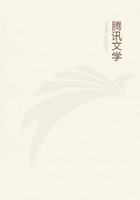The stranger's slow approach might have been a mere leisurely manner of gait or the cramped short steps of a rider unused to walking; yet, as well, it could have been the guarded advance of one who took no chances with men.
"Hello, stranger!" called Tull. No welcome was in this greeting only a gruff curiosity.
The rider responded with a curt nod. The wide brim of a black sombrero cast a dark shade over his face. For a moment he closely regarded Tull and his comrades, and then, halting in his slow walk, he seemed to relax.
"Evenin', ma'am," he said to Jane, and removed his sombrero with quaint grace.
Jane, greeting him, looked up into a face that she trusted instinctively and which riveted her attention. It had all the characteristics of the range rider's--the leanness, the red burn of the sun, and the set changelessness that came from years of silence and solitude. But it was not these which held her, rather the intensity of his gaze, a strained weariness, a piercing wistfulness of keen, gray sight, as if the man was forever looking for that which he never found. Jane's subtle woman's intuition, even in that brief instant, felt a sadness, a hungering, a secret.
"Jane Withersteen, ma'am?" he inquired.
"Yes, she replied.
"The water here is yours?"
"Yes."
"May I water my horse?"
"Certainly. There's the trough."
"But mebbe if you knew who I was--" He hesitated, with his glance on the listening men. "Mebbe you wouldn't let me water him--though I ain't askin' none for myself."
"Stranger, it doesn't matter who you are. Water your horse. And if you are thirsty and hungry come into my house."
"Thanks, ma'am. I can't accept for myself--but for my tired horse--"
Trampling of hoofs interrupted the rider. More restless movements on the part of Tull's men broke up the little circle, exposing the prisoner Venters.
"Mebbe I've kind of hindered somethin'--for a few moments, perhaps?" inquired the rider.
"Yes," replied Jane Withersteen, with a throb in her voice.
She felt the drawing power of his eyes; and then she saw him look at the bound Venters, and at the men who held him, and their leader.
"In this here country all the rustlers an' thieves an' cut-throats an' gun-throwers an' all-round no-good men jest happen to be Gentiles. Ma'am, which of the no-good class does that young feller belong to?"
"He belongs to none of them. He's an honest boy."
"You know that, madame?"
"Yes--yes."
"Then what has he done to get tied up that way?"
His clear and distinct question, meant for Tull as well as for Jane Withersteen, stilled the restlessness and brought a momentary silence.
"Ask him," replied Jane, her voice rising high.
The rider stepped away from her, moving out with the same slow, measured stride in which he had approached, and the fact that his action placed her wholly to one side, and him no nearer to Tull and his men, had a penetrating significance.
"Young feller, speak up," he said to Venters.
"Here stranger, this's none of your mix," began Tull. "Don't try any interference. You've been asked to drink and eat. That's more than you'd have got in any other village of the Utah border.
Water your horse and be on your way."
"Easy--easy--I ain't interferin' yet," replied the rider. The tone of his voice had undergone a change. A different man had spoken. Where, in addressing Jane, he had been mild and gentle, now, with his first speech to Tull, he was dry, cool, biting.















